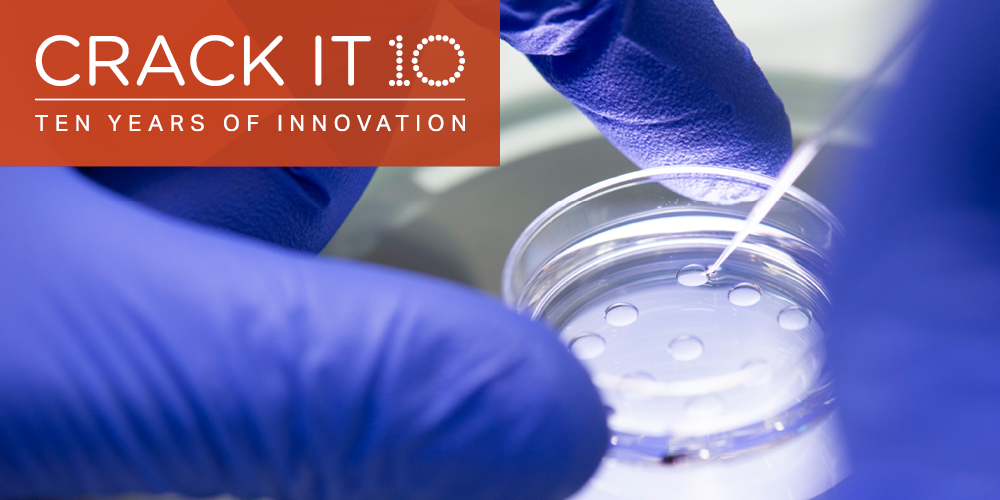
This webinar forms part of the CRACK IT 10 year anniversary celebrations. It will showcase the IVF micro microfluidic device that improves the developmental competence of in vitro-derived embryos to allow the use of non-surgical embryo transfer (NSET) in the generation of transgenic mice. IVF micro was developed to address the 2016 EASE CRACK IT Challenge sponsored by MRC Harwell.
IVF micro is a microfluidic device that enables the reliable culture of embryos to the blastocyst stage required for the NSET approach – the technology is cheap, transparent and compatible with standard laboratory equipment. More than 15 embryos can be cultured in the same device. In addition to the welfare benefits from facilitating the use of NSET approaches, the device enables safer, simpler, and more reliable in vitro culture of high-quality embryos without the use of mineral oil which can affect blastocyst development.
The device has many applications in developmental biology and assistive reproductive technology including clinical and agricultural applications where techniques for in vitro fertilisation and in vitro production of embryos are sub-optimal, presenting significant future market opportunities. A spin-out company to commercialise the technology is being set up with support from the CRACK IT Business Growth Scheme.
During this webinar, which is free to attend, you will hear from one of the developers of the IVF Micro device and an end-user whose work has benefitted from the technology. There will be an opportunity to ask questions after the webinar presentation.
Speakers
-
Dr Virginia Pensabene (University of Leeds) will describe how her team applied their expertise in microfluidics and reproductive biology to develop the IVF micro device in collaboration with MRC Harwell. She will describe the technology development and validation process, how CRACK IT supported this and the potential of the system to be applied across multiple sectors.
-
Sarah Hart-Johnson, Head of Colony Management Services at The Francis Crick Institute will describe how they are working with Virginia and her team on their CRACK IT Business Growth Scheme project to further validate and deploy the IVF Micro device to realise its full 3Rs potential.
Background
The EASE Challenge, sponsored by MRC Harwell and launched in 2016, aimed to develop a technology that improved the implantation rates of early-stage mouse embryos to increase the use of NSET in the generation of transgenic mice, reducing the reliance on surgical methods and improving animal welfare.
A team led by Dr Virginia Pensabene at the University of Leeds developed a microfluidic device that improves the developmental competence of in vitro-derived mouse embryos, making them more viable for NSET. This new closed microfluidic device improves the quality and viability of embryos as they develop to the blastocyst stage by reducing their exposure to potential in vitro stressors through the manipulation of the volume, composition, pH and oxygen tension of the medium.
The EASE Challenge was awarded to a team led by Dr Virginia Pensabene at the University of Leeds. Further information about the EASE Challenge can be found on the NC3Rs Innovation Platform.
